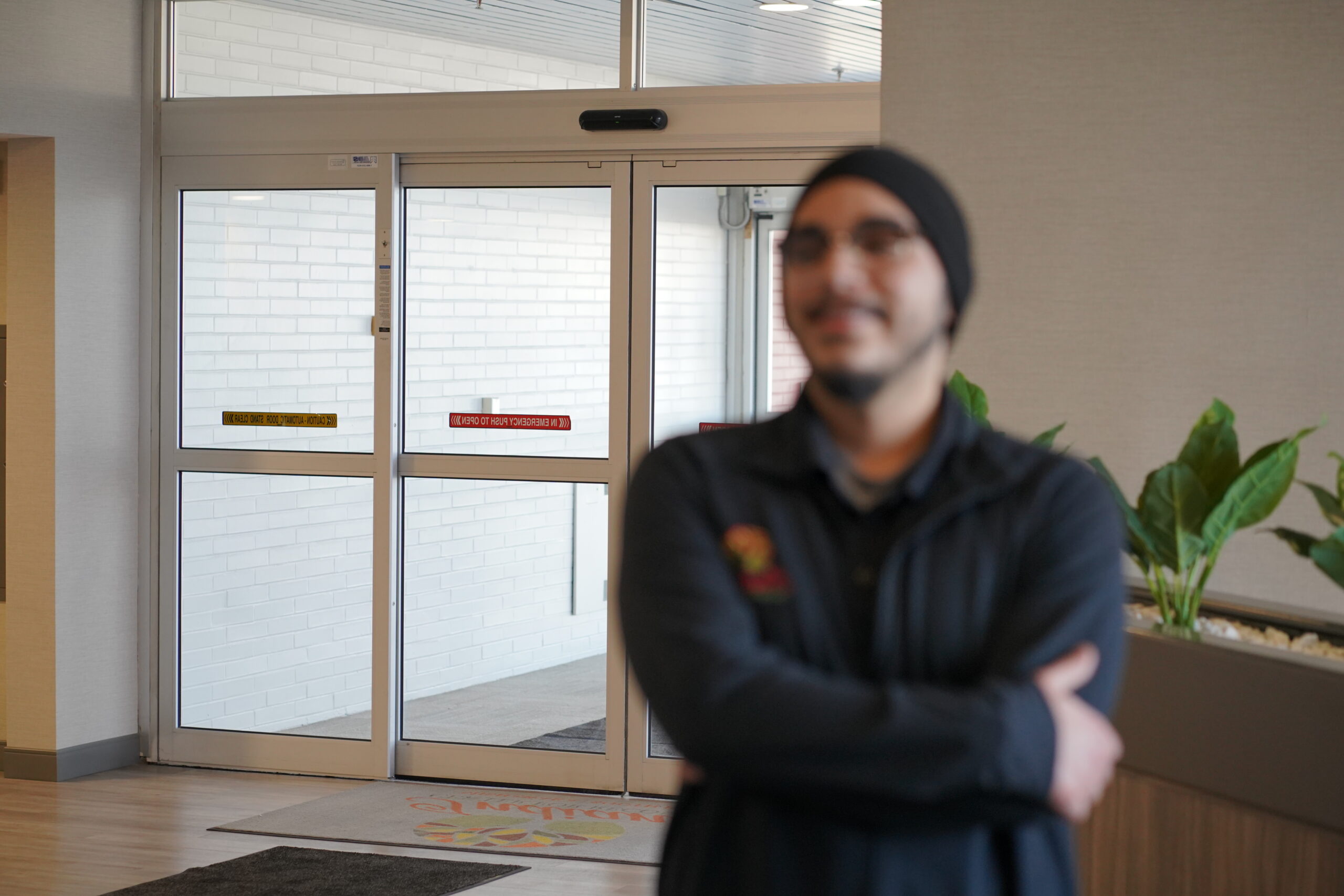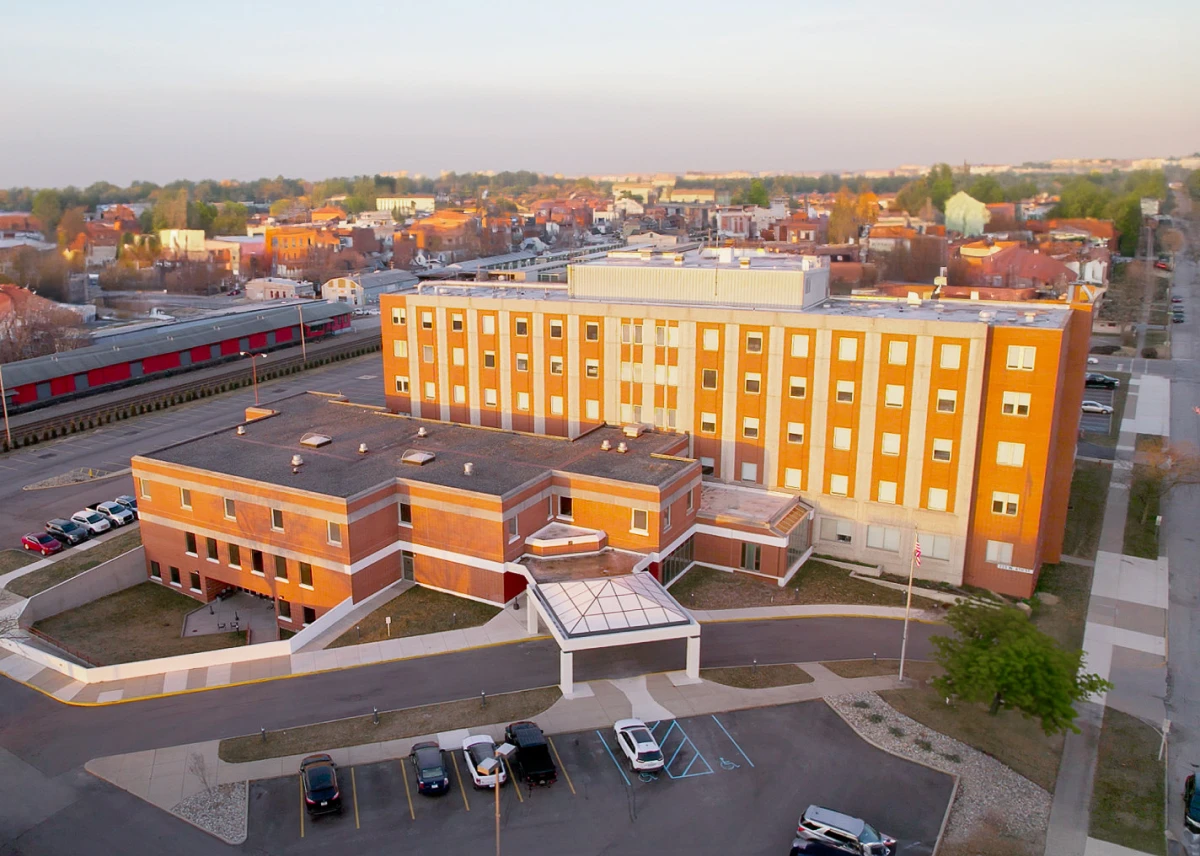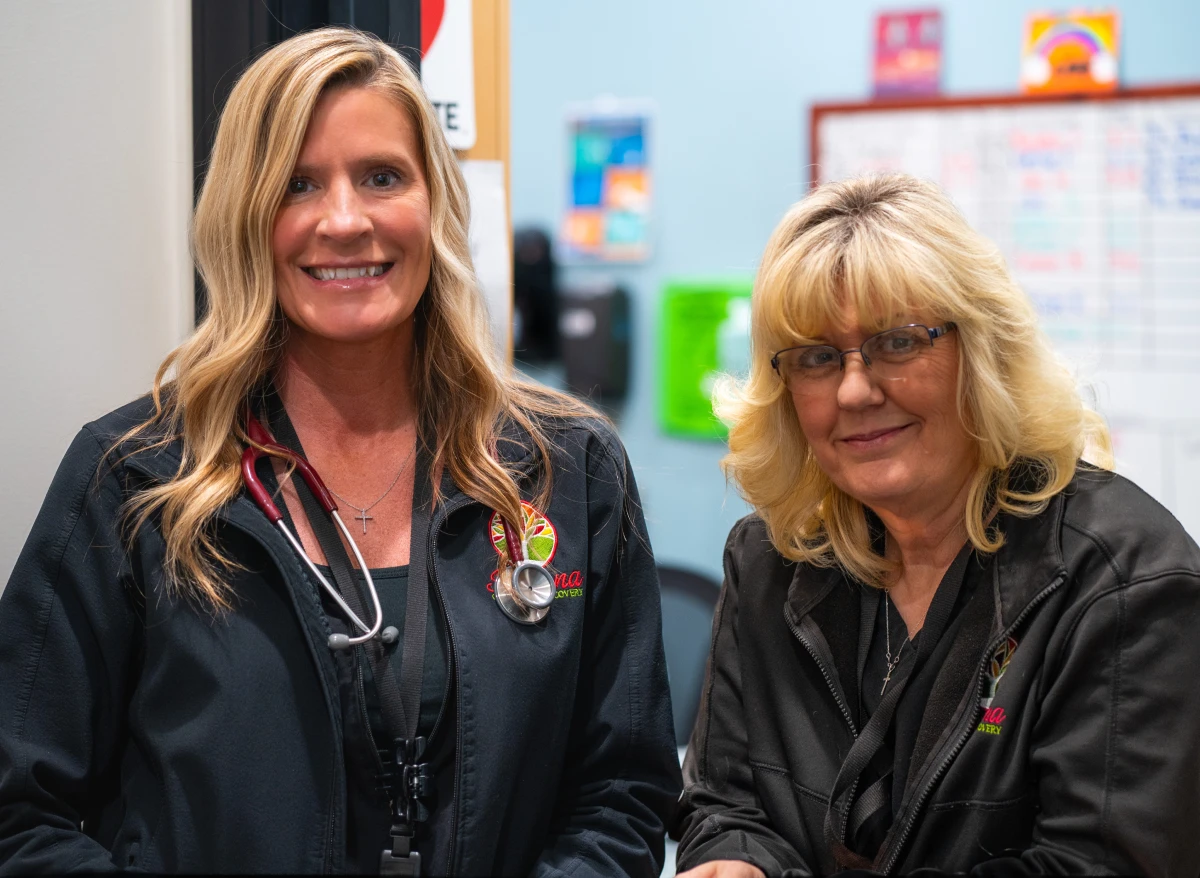What to Expect in Inpatient Psychiatric Care
When safety is the priority, everything else can wait. Psychiatric care starts with stabilization in a quiet, medically monitored setting — and then builds a path forward.
- Immediate stabilization and crisis aversion
- Onsite detox available if substance use is involved
- Smooth transition into long-term treatment options
- Family support, including clinician-guided communication
- Psychiatrist-led care with deep dual-diagnosis experience
- GeneSight for medications based on genetics instead of guesswork
What Happens First
Innovative, Real-Time Medication Management
GeneSight® testing helps match psychiatric medications with your unique genetics — reducing the trial and error that can be so frustrating. You’re able to start with medications most likely to work for you, with fewer side effects and faster results.
Medications are monitored closely to see how you’re responding. Adjustments are made right away. This kind of real-time oversight helps you feel better faster and avoids long delays you may have experienced with outpatient care.
Transitioning to Residential Treatment
The psychiatric unit is designed to stabilize you during a mental health crisis. Once the immediate danger passes and symptoms are under control, care moves to our residential treatment program on the same campus.
Residential treatment provides a more home-like setting where you still have 24/7 support and still check-in with the medication team, but your schedule is more focused on therapies than medical.
- Most patients only need 3 to 7 days in the psych unit to feel stable enough to move to residential.
Learn About Residential Care →
Crisis-Ready Medical & Clinical Experts
Psychiatric care can cost little to nothing out of pocket if you’ve already had substantial healthcare expenses this year. Verify your specific coverage quickly and confidentially, with no commitment to actually come in.

Dr. Michael Kane MD
Chief Medical Director
Double board-certified in Psychiatry and Family Medicine
Treating complex substance use patients for over a decade
Featured in 150+ publications like Newsweek and research journals
Truly listens and goes beyond symptoms with innovative therapies

Jackie Daniels LCSW
Director of Clinical Development
Masters-level clinically licensed therapist
20+ years of experience in addiction & mental health treatment
National speaker & recovery advocate
Decades in recovery herself with relatable lived experience
Proof That Things Can Get Better
I came to Indiana Center for recovery 2 years ago broken, disheartened, and desperate for help. I was deep in psychosis. The staff were patient with me. They took a chance on me and saved my life. I wouldn’t be the person I am today if not for everyone at ICFR.
Being at ICFR was a life changer in such a profound way. I gained a deeper understanding of myself to navigate my mental health and continued recovery.
Kind staff that got me on the right meds, and I feel amazing. Best therapist I’ve ever had. I used to be absolutely suicidal, now i feel zero depression or anxiety. Highly recommend. They got me my resources almost immediately.
Yes, Psychiatric Care Is Covered By Insurance
Treatment here is usually in-network, so any cost to you is as low as possible — sometimes even zero. No one will be notified if you reach out. And, there’s no commitment to get answers.
Verify Your Insurance











 100% Confidential
100% Confidential